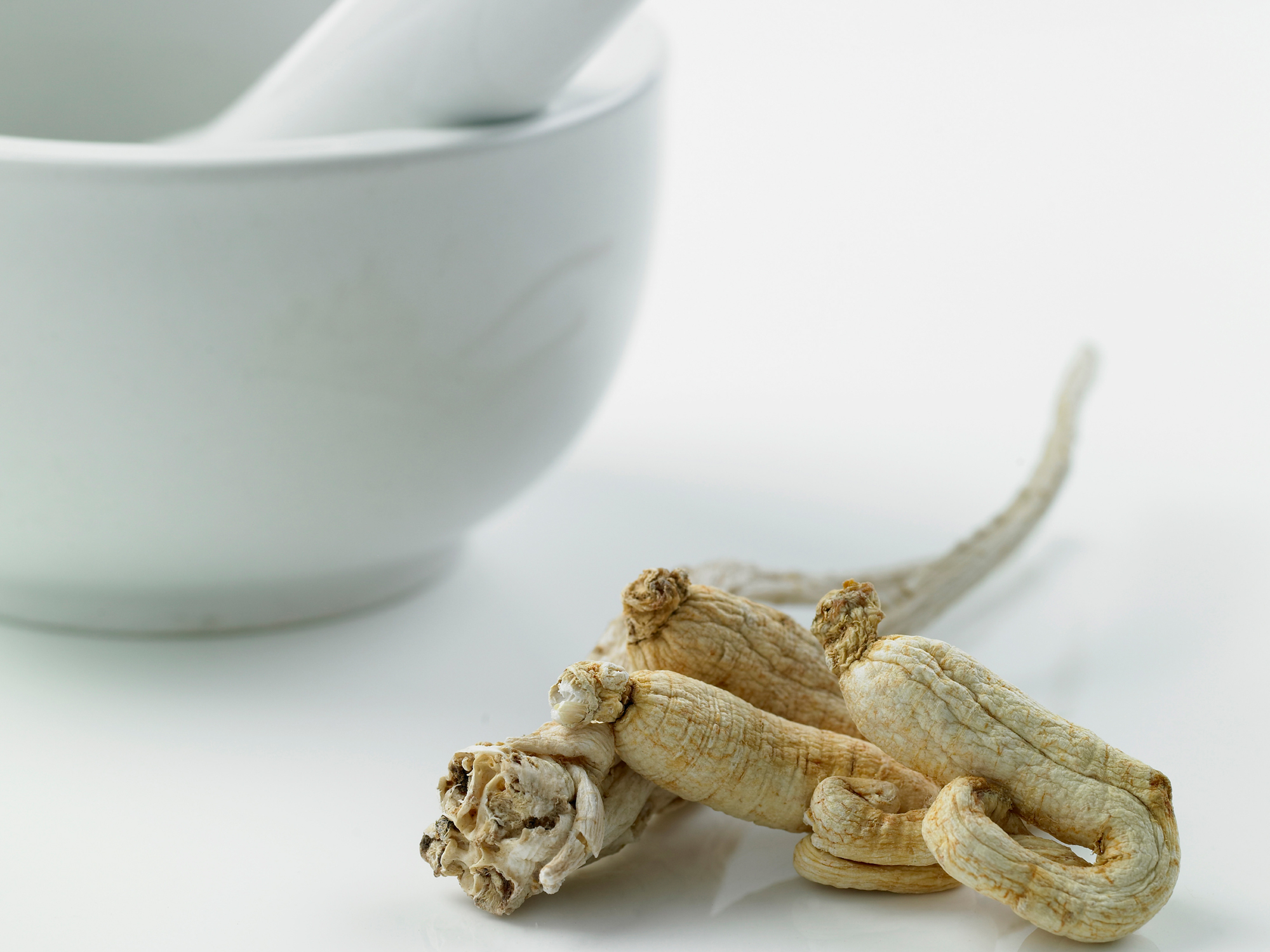Get Easy Health Digest™ in your inbox and don’t miss a thing when you subscribe today. Plus, get the free bonus report, Mother Nature’s Tips, Tricks and Remedies for Cholesterol, Blood Pressure & Blood Sugar as my way of saying welcome to the community!
4 incredible benefits of ginseng

Ever since giving birth to our second child, I have used ginseng to help with my fatigue. As any new parent or grandparent knows, having a newborn in the house can prevent anyone from getting a good night’s sleep.
And, it’s been such a lifesaver for me that I’ve never stopped using it.
In fact, just a single cup of ginseng tea in the morning is better than coffee for giving me the energy I need to make it through my day.
However, I recently discovered four other amazing benefits this super herb has to offer.
Before I get to the benefits of this herbal powerhouse, please note that the ginseng I’m writing about is American ginseng and Korean red ginseng. Siberian ginseng is also marketed as a supplement, but its benefits haven’t been studied, as it’s not a true variety.
Now, let’s look at what ginseng can offer…
Ginseng benefit #1 – Improved cognition
Besides the extra energy benefit, ginseng has been shown to improve cognitive function, including enhanced focus and clarity.
Research involving 58 Alzheimer’s patients demonstrated increased cognition after only 12 weeks, as seen by improved ADAS scores. Those scores declined quickly after removing ginseng from the patients, suggesting a direct link to the effectiveness of the herb.
So, kick the caffeine to the curb and try ginseng to keep you on top of your game.
Ginseng benefit #2 – Cancer prevention
Ginseng may also possess broad-based anticancer properties according to a study in Asia. These include protection against cancers of the:
- Lung
- Stomach
- Pancreas
- Ovary
- Colorectal
- Lip
- Larynx
- Oral cavity
- Liver
These long-term studies indicate real potential for ginseng as a useful preventative against several forms of cancer.
So, if you want to amp up your cancer-fighting power, it’s time to give ginseng a try.
Ginseng benefit #3 – Anti-viral
Then there is the possible prevention of Influenza A and RSV (respiratory syncytial virus) with the use of ginseng. One study reported that red ginseng extract improved the survival rate of lung cells infected with the influenza virus.
Dosage recommendations range from 100mg to 400mg daily, and up to 2,000mg for 3 months during the flu season.
If you want to forego the side effects of Tamiflu, including headaches, nose bleed, confusion, insomnia and even mood changes, consider using ginseng instead.
Ginseng benefit #4 – Anti-inflammatory
If you suffer from arthritis or another inflammatory condition, ginseng could give you the relief you’ve been waiting for.
Researchers have found that seven constituents in ginseng actually inhibit the expression of the “inflammatory gene”, demonstrating why this root has been used for centuries in traditional Chinese medicine for its anti-inflammatory effects.
And as a bonus, ginseng doesn’t come with a laundry list of side effects like those prescription arthritis medications or potentially dangerous short-term steroids.
Tips on using ginseng
You can find ginseng tea and supplements at your natural health food store or online. Just remember to choose either American ginseng or Korean red ginseng.
And, whether you drink a hot cup of ginseng tea, like I do, or take it in supplement form, make sure to take a 1-week break from it after every 3-4 weeks, as it can lose its effectiveness with continual use.
Now, a word of caution – Don’t take ginseng if you’re already taking an MAOI, blood pressure or heart medications, or any blood clotting medications like aspirin or warfarin. If you are on any of these medicines or others you take regularly, it wouldn’t hurt to ask your doctor if he thinks energy-boosting ginseng might interfere with them.
Sources:
-
Panax ginseng enhances cognitive performance in Alzheimer disease — Alzheimer Disease and Associated Disorders
-
Experimental and epidemiological evidence on non-organ specific cancer preventive effect of Korean ginseng and identification of active compounds — Mutation Research
-
Immunomodulatory Activity of Red Ginseng against Influenza A Virus Infection — Nutrients
-
Ginseng: Nature’s Anti-inflammatory? — Journal of Translational Medicine












